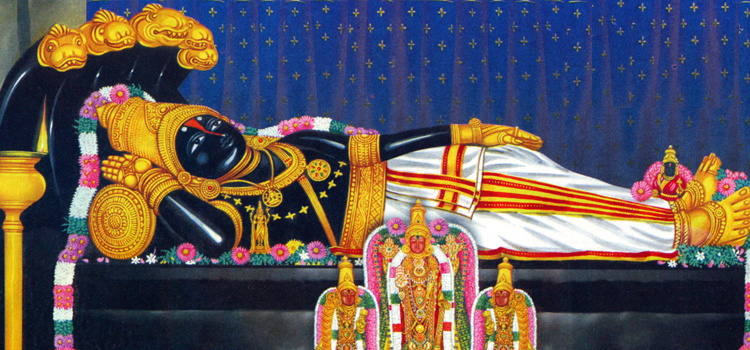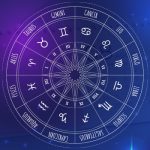Vaikunta Ekadashi is a very auspicious day for Hindus, especially Vishnu devotees. It is also called Mukkoti Ekadasi or Swarga Vathil Ekadashi.
Why is Vaikunta Ekadasi Special?
All the Ekadashis – around 24 in a month – are auspicious, but Vaikunta Ekadashi is very special because the belief is that, on this auspicious day, the Vaikunta Dwar or the gate of heaven opens, and those who fast on this day can get the merit of observing all the Ekadasis in a year.
Vaikunta Ekadashi occurs in the Tamil month of Marghazhi (December-January) in the Tamil calendar. Fasting on Vaikunta Ekadashi can erase all sins and free one from the cycle of birth and death, thereby bestowing Moksha.
Legend behind Vaikunta Ekadasi
Hindus observe Ekadasi by observing a fast and staying awake all through the night, chanting Mantras and singing Kirtans. The Padma Purana explains the story behind the Ekadasi fast. Once, there was a terrible demon named Muran who was creating a lot of trouble for the gods. Vishnu fought the demon for many years, but he was so powerful that even Vishnu found it hard to kill him. Eventually, Vishnu became tired and retired to a cave to rest awhile and create a new weapon to kill Muran. While he lay sleeping, Muran sneaked into the cave and tried to kill him. But, suddenly, a female form came out from Vishnu’s body and killed the demon. Pleased, Vishnu gave her the name Ekadasi and offered her a boon. Ekadasi requested Vishnu to grant Moksha to people who fasted on that day and Vishnu agreed.
This happened in Margazhi month, and Vishnu told Ekadasi that if anyone worshipped him on that day, they could attain Vaikunta. Hence, on this day, Vaishnavites observe fast and avoid eating rice as they believe that Muran dwells in rice.
Vaikuntha Ekadasi – Significance
Hindu myths always contain deeper meanings. In this story, Muran can be said to represent worldly pleasures and negative traits like greed, lust, inertia, arrogance, etc. When people succeed in overcoming such negative traits, they become pure or Satvik. This helps them to attain Moksha. Fasting teaches us self-control and observing vigil at night makes us more alert. Rice makes us sleepy, and hence, people avoid rice in order to stay awake at night and meditate on Vishnu.
Another myth related to Vaikunta Ekadasi claims that Krishna’s spiritual discourse to Arjuna on the Kurukshetra battlefield took place on this day. His discourse is famously known as the Bhagavad Gita.
Religious Importance of Ekadasi
Ekadasi is the 11th day of every fortnight in a lunar month. Every lunar month has 2 Ekadasis – a bright one and a dark one. As per the Rigveda, the Sun is called Atmakaraka, which means ‘the soul of man’ and ‘the soul of the Universe’. The Sun and the Moon have great importance in the Vedas. On the day of Ekadasi, these two celestial bodies exert a powerful influence on the human mind due to their astronomical positions. This is why Yogis and devotees observe fast and meditation on this day. The fast helps keep the mind alert and the body light during the meditation.
When a person observes Ekadasi fast, their soul and spirit will be in perfect alignment with their astral planets. Doing meditation also improves one’s concentration. There will be special prayers and rituals in Vishnu temples on this day.
Vaikunta Ekadasi Rituals
The fast begins on the night before Ekadasi. If you intend to observe the Vaikunta Ekadasi fast, avoid having dinner the night before. Devotees observe fast for the entire day and keep vigil at night while chanting Slokas of Vishnu. Some perform meditation. The next morning, they visit a Vishnu temple and conclude their Vaikunta Ekadashi observance.
Foods to Avoid on Vaikunta Ekadasi
Many people observe a complete fast on this day. But sick people, pregnant women, diabetics, etc., can observe a partial fast after consulting with their doctor. They can have milk, fruits, nuts, raw vegetables, or wheat porridge. Sabudana Khichdi without onion and garlic is another option. One should avoid rice totally. This will also include rice-based items like Akki roti, Dosa, etc. Grains and flour made from grains except for wheat, leafy vegetables, cream, cottage cheese, packaged food, onions, garlic, fried snacks, honey, etc., are not allowed. One should not eat pulses either on Ekadashi day.
Use of Spices
One can use fresh black pepper, ginger, turmeric, and pure salt.
Avoid using asafoetida (hing), cumin, mustard, sesame seeds, fenugreek, tamarind, cardamom, cloves, nutmeg, ajwain, and fennel on Ekadashi.

